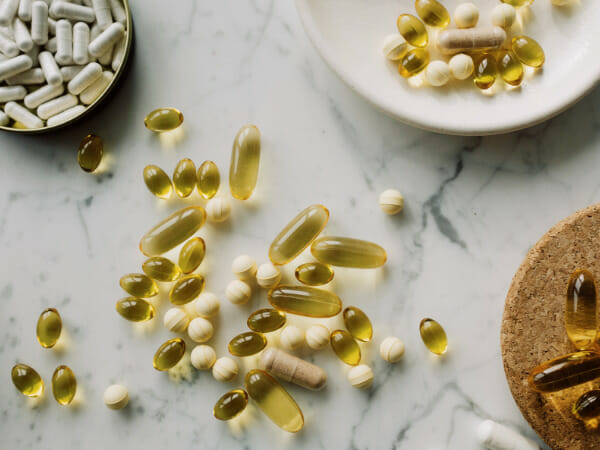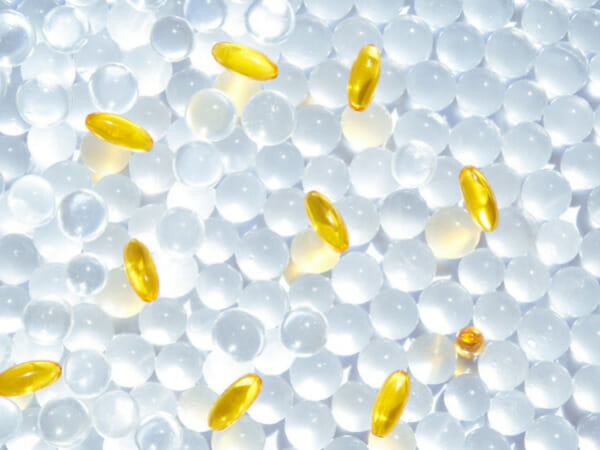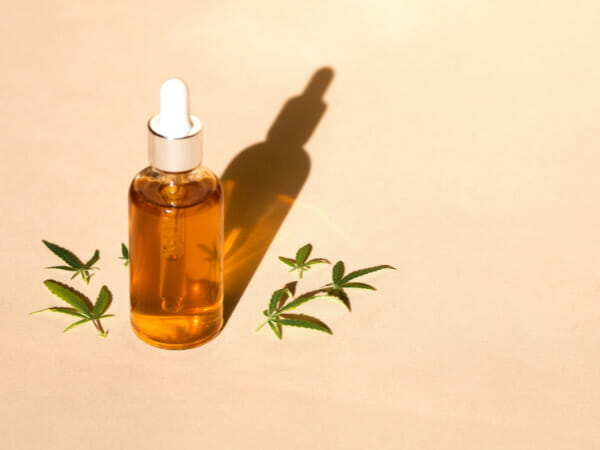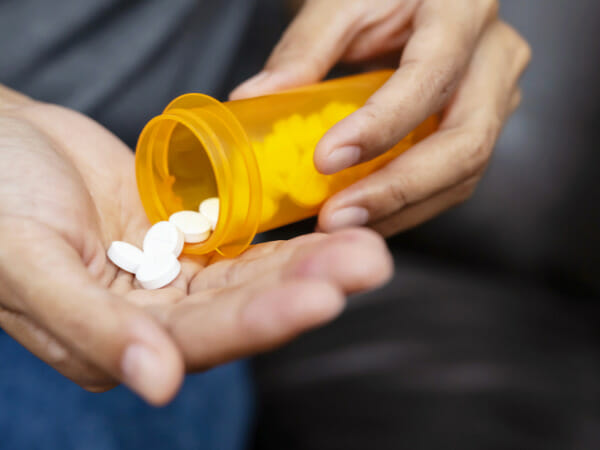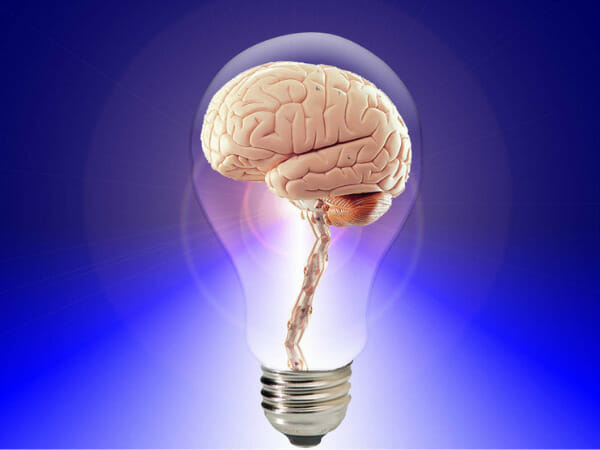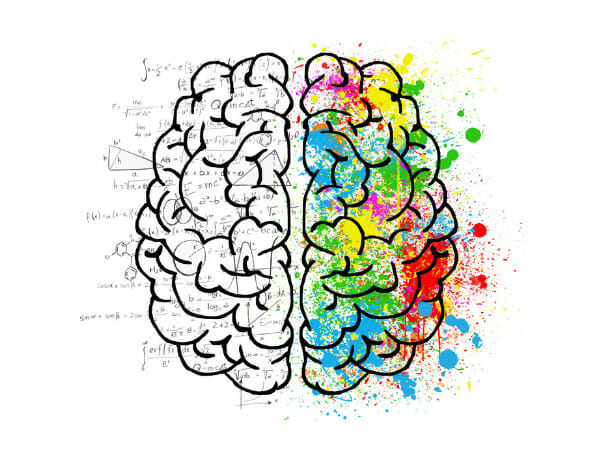The Best Brain Supplements for Improved Mental Performance
You may have heard about the top brain supplements lately. From TV ads to online articles, you’re bound to come across various products that claim to “boost mental energy” or “slow cognitive decline.” The question is, do they truly work?
You will have to start by tempering your expectations. These brain pills and foods aren’t going to turn you into a superhuman like in the movie “Lucy” or “Limitless.” Still, these may help with certain brain health conditions and protect your long-term cognitive health.
That’s why we will go through the list of the best brain supplements by dividing them into two categories. The first one will cover the ones you can get over the counter, while the other shows the options that require prescriptions. After that, we will go over more details regarding their effects on brain function.
Here is the list of brain meds.
Numbers one to five are over-the-counter, while six to eight require a prescription:
- Caffeine
- L-theanine
- Creatine
- Fish Oil
- Cannabidiol
- Adderall (Amphetamines)
- Ritalin (Methylphenidate)
- Modafinil (Provigil)
Over-the-counter brain supplements
This list may seem strange because most of its entries are stuff you may consume daily. We may consider caffeine a brain supplement, yet it’s common to start your day with coffee.
Head to a nearby Walgreens or your local pharmacy, and you may find a huge selection of health of your brain enhancers and other similar products. Look at the labels, and you’ll often find caffeine.
You might want to try the options that don’t require a doctor’s recommendation. Perhaps they could help you maintain healthy brain function without facing the risk of severe side effects.
This might save you some money as well. Still, these options may pose risks to your health if you use them too often. Here are the best over-the-counter brain supplements:
#1. Caffeine
It’s the biggest brain supplement because billions of people drink coffee every day. Yet, caffeine isn’t just in your daily cup of Joe.
You can also find it in tea and energy drinks. Caffeine also comes as an ingredient in numerous headaches and other health conditions.
People also recognize its ability to boost brain function. It stimulates the central nervous system by promoting the release of neurotransmitters.
These are chemicals that brain cells produce, such as dopamine and serotonin.
It may also improve the other aspects of brain health like:
- reaction
- mood
- alertness
- attention
- learning
- memory
- overall mental performance
If your mind and body feel tired, caffeine may also serve as a pick-me-up. It may even reduce a person’s risk for Parkinson’s disease and Alzheimer’s disease.
Caffeine has such an effect on body and brain function that some retailers sell Caffeine pills. Some people even ingest it for their routine workouts as a pre-workout formula.
However, you may experience negative effects if you consume too much. A TikTok trend called dry scooping made the news last year.
It involved TikTok users recording themselves as they ingest a scoop of pre-workout without mixing it with water.
A 20-year-old had to go to the hospital as dry scooping caused the person to have a heart attack. Caffeine can enhance brain functions, but you should take it in moderation.
#2. L-theanine
Perhaps caffeine isn’t your cup of tea. If you prefer hot leaf juice, then you might be glad that it has one of the best brain supplements in it.
L-theanine is a natural amino acid found in black tea, green tea, and some types of mushrooms. You may also find it sold as a dietary supplement on the internet.
It may affect certain brain chemicals such as serotonin and dopamine.
This is why it’s likely to bring the following benefits to brain health:
- Sharpened mental focus
- Improved sleep
- Increased feelings of relaxation
- Enhanced cognitive functions
It might become more effective when paired with caffeine. That’s why you may find pills that mix these two chemicals.
By itself, L-theanine is unlikely to cause negative effects. Once it interacts with other prescription meds, you’re more likely to experience them.
L-theanine is available as an over-the-counter brain function supplement. Still, you may want to consult a doctor before taking L-theanine if you drink other drugs for certain conditions.
#3. Creatine
This is another natural substance that benefits brain function. You may find Creatine in various foods, especially fish and beef. Some stores sell it as a dietary supplement so that you can increase your intake in a relatively affordable way.
Two universities from Australia found that creatine may improve memory and intelligence. Similar to the other brain health supplements, Creatine may cause unintended effects.
For example, you may feel bloated if you’re taking Creatine for the first time. If you have kidney problems, you might want to talk to your doctor about taking this natural extract.
Some people know that creatine can raise creatinine levels above the normal threshold. That’s why they’re likely to assume that it could cause kidney damage.
Still, no scientific research confirms that Creatine can harm this part of the body. What’s more, you might want to avoid taking caffeine along with this substance.
That’s because it may reduce the effectiveness of Creatine. Taking both of these substances may also worsen Parkinson’s disease.
#4. Fish Oils
You may have seen this sold as soft gel capsules at your local store. It may seem strange to take oil from fish, but you might be surprised just how healthy it is.
When people talk about fish oils, they usually refer to Omega-3 fatty acids. These are natural fluids found in most fish, with others providing more fish oils than others.
For example, salmon and tuna typically have more Omega-3 fatty acids than other options. If you look closely, fish oils may cause physical changes that boost brain function.
It can build nerve cell membranes to maintain the fluidity of these brain cells. What’s more, it enables the activation of receptor systems in the brain.
Fish oil may even help people cope with a wide range of psychological disorders.
It might be helpful for the following conditions:
- Bipolar disorders
- The decline of cognitive abilities
- Postpartum depression
- Depression
As it improves cognitive function, it may even boost memory. You may even find “brain power supplements” that are meant to boost mental performance.
It’s important to have realistic expectations, though. It won’t enhance your brain function to the point of turning you into a supergenius! Also, you may have to take these supplements for several months before noticing actual changes.
#5. Cannabidiol
Let’s talk about another substance you may have never considered: CBD. Also known as Cannabidiol, you may have seen it more often in your area.
That’s because marijuana legalization is spreading across the US. This means more US states allow the sale, use, and possession of CBD products.
It’s a substance found in hemp and marijuana plants. This is why many people assume it can cause folks to “feel high.” Yet, it doesn’t induce such psychoactive effects.
Tetrahydrocannabinol or THC causes these, and you can find many CBD products without it. Some keep the THC amount to just 0.3% following the 2018 Farm Bill.
This makes sure that the THC isn’t enough to trigger mind-altering effects. Meanwhile, its presence may boost the product’s effectiveness.
What can CBD products do? It has many potential health benefits, especially for brain function. For example, it may help someone regulate their mood.
In turn, CBD may help them deal with anxiety and depression. This may also induce calm sensations to help people fall asleep easier than before.
While CBD products can help brain function, we need more studies to support such benefits. It would be best to consult your doctor before taking CBD.
Prescription brain supplements
Now, we can turn out attention to the usual “smart drugs” or “brain pills.” As the title suggests, you will need a doctor’s note before buying any of these options.
That’s because these are meant for certain mental health conditions, not for casual use. Otherwise, you are likely to experience serious adverse effects.
Still, many people use these brain drugs. You may have noticed some of these making the headlines often.
Here are the well-known options that require a prescription:
- Adderall (Amphetamines)
- Ritalin (Methylphenidate)
- Memantine
- Modafinil (Provigil)
#6. Adderall (Amphetamines)
You may have heard of this medicine during your school years in the United States. That’s because it has become a common brain pill for students.
That’s because they claim it helps them boost focus and beat brain fog. The latter isn’t a medical condition. It’s a blanket term that refers to the situation where a person’s mind feels “sluggish and fuzzy.”
It’s normal to experience as various factors may change in your daily routine. For example, you may have to stay late for a few consecutive days or perform strenuous activities.
These are ordinary parts of daily life that may cause brain fog, but it usually goes away with proper sleep. It might not be ideal to use prescription medicines like Adderall in these situations.
This doesn’t stop many students from taking too much. Some claim Adderall helps them focus on their studies, while others feel compelled because of peer pressure.
The FDA has only approved Adderall for treating Attention Hyperactivity Deficit Disorder (ADHD) and narcolepsy. Sometimes, doctors may recommend it for these off-label uses:
- Anxiety
- Depression
- Bipolar disorder
Again, it’s not good to use this just for improved brain function. Consult your doctor first before taking Adderall.
#7. Ritalin (Methylphenidate)
This is one of the top brain supplements arguably as well-known as Adderall. British universities have come under fire due to “study drugs.”
On January 18, 2022, Vice reported that some students in the United Kingdom overuse certain drugs. These include prescription meds like Ritalin to illegal drugs like cocaine.
Similar to Adderall, it’s meant for those with ADHD and narcolepsy. That’s why you would need a doctor’s note before you can get one at your local pharmacy.
Your doctor may recommend it for other conditions or off-label uses.
Read below for a list of these purposes:
- Cancer
- Certain types of depression
- Apathy caused by Alzheimer’s disease
Your physician may even recommend it for improving cognitive function. Still, it would be best to get a prescription before taking Ritalin.
#8. Modafinil (Provigil)
This is another one of those drugs that made headlines in the UK. Some British students have been using Modafinil because they believed it could improve cognitive function.
The Food and Drug Administration only approved Modafinil for narcolepsy, shift work sleep disorder, and obstructive sleep apnea.
Studies also found that it’s potential to provide the following benefits:
- May reduce feelings of fatigue
- It might boost memory for adults who lack sleep
- It might improve executive functioning or the ability to manage one’s time and resources to attain goals properly
Again, make sure you consult a health professional before you take this brain supplement. This will make sure you get the utmost benefits while avoiding risks.
What are brain supplements?
We’ve explored a lot of promising options for brain health. Still, it would be best to learn all you can think about them.
Aside from knowing about each specific option, you should learn more about these “brainpower” or “brain energy” substances in general. This will help you make an informed choice when buying them.
They’re also called “nootropics,” and the term comprises two Greek words. The first is “noo,” meaning “mind,” and the second is “tropein,” which means “towards.”
This means that these drugs and supplements work towards improving brain function. We may classify them into three groups:
Eugeroics
These are drugs that help people stay awake and alert. Some people in the late 1990s introduced it to treat shift work sleep disorder, narcolepsy, and obstructive sleep apnea.
Notable examples include Modavigil, Nuvigil, and Modafinil. You may recall the last one as one of the entries on the list of top meds for brain function.
Modafinil may even help people with reducing their drug craving and dependence. Still, we need more research to back this up. ADHD medications
As the name suggests, these are drugs meant for helping those with Attention Deficit Hyperactivity Disorder. Here are some notable examples:
- Ritalin
- Dexamphetamine tablets
- Vyvanse
- Concerta
Ritalin is another brain function drug we discussed. In the 1950s, people used it to treat depression, chronic fatigue, and certain symptoms of depression.
Sadly, some people use ADHD medications even if they don’t have the condition. As a result, many suffered negative effects such as weight loss.
Nootropic supplements
Do you remember the natural substances we discussed? You may refer to those who don’t need a prescription as nootropic supplements.
These may improve brain function, but they don’t work instantly. As we talked about, you may need to take them for several months to gain noticeable effects.
These might be the safest options as you can find these in healthy brain foods. Still, it would be best to take them in moderation to avoid unintended effects.
How do brain health supplements work?
If you noticed, scientists have found that these smart drugs and foods cause changes to the brain. Specifically, they often cause the production of neurotransmitters.
These are substances that your brain naturally produces. Once they bind to its receptors, you experience certain benefits to brain function.
For example, caffeine may help in producing more serotonin and dopamine. In turn, these could be the reason why you feel great after drinking a cup of coffee.
Some folks experience effects because of the placebo effect. It’s when a person believes that something has positive effects, so they end up experiencing them.
This is more likely to happen with smart drugs as many have stimulants. In other words, they may contain substances that enhance mood.
This could be why some people feel like they get more “mental energy” from their brain pill.
Do they truly help cognitive function?
You may have also noticed that this article avoids making claims about brain function benefits. Each part describes the likelihood of experiencing these, not the guarantee.
Does this mean that these “smart drugs” don’t work? It’s more accurate to say that we cannot be 100% sure of their effects on people.
We may have similar bodies, but each has different health conditions. This means that we might not be aware of some factors affecting our experience with brain meds.
This is why it’s a good idea to consult a doctor before taking them. Your physician can screen all the factors that may affect your brain function.
This allows them to recommend the right brain function enhancer for you. Otherwise, you may put yourself at all sorts of risks.
Do brain supplements have any risks?
We’ve covered several negative effects you may experience with these products. Let’s take caffeine as an example.
Take too much of it, and you may experience a heart attack. If you recall, this is what happened to the young adult who took on the Dry Scooping Challenge on TikTok.
Worse, you may get addicted to these substances. If you stop abruptly, you may experience withdrawal symptoms. Both instances can interfere with your daily life.
Some even try to take different nootropic supplements at once. They believe that mixing them may boost a specific brain function more effectively than taking them individually.
Others want to gain different mental benefits at once. However, this is not advisable as this could cause adverse effects.
Other ways to improve brain health
Unless you have a specific health condition, you may not need to take nootropic supplements. These methods may seem mundane, but they work nonetheless.
It would be best to eat some of the healthy brain foods on the previous list. This means eating more meat and fish to get creatine and fish oils. You may also gain nootropic effects from eating leafy vegetables.
Exercise may also help keep your heart healthy. In turn, it could enhance blood flow to your brain and improve cognitive function.
It’s also a good idea to sleep for eight hours. Contrary to popular belief, sleep is essential for maintaining brain health.
Final thoughts
Please consult your doctor before taking any supplements for brain health. It would save you money and prevent side effects.
Most of them are generally safe, but that doesn’t eliminate the risk of adverse effects. This is especially true if you are taking medications for certain medical conditions.
If you experience any unintended symptoms, it would be best to stop taking the supplement. Head to the doctor if needed.

